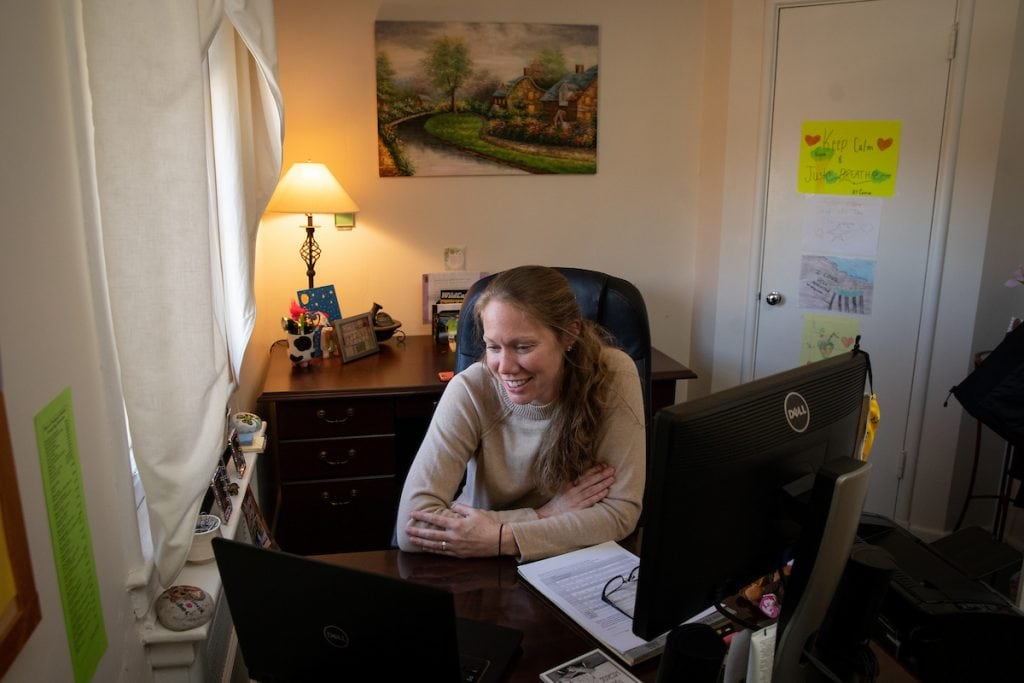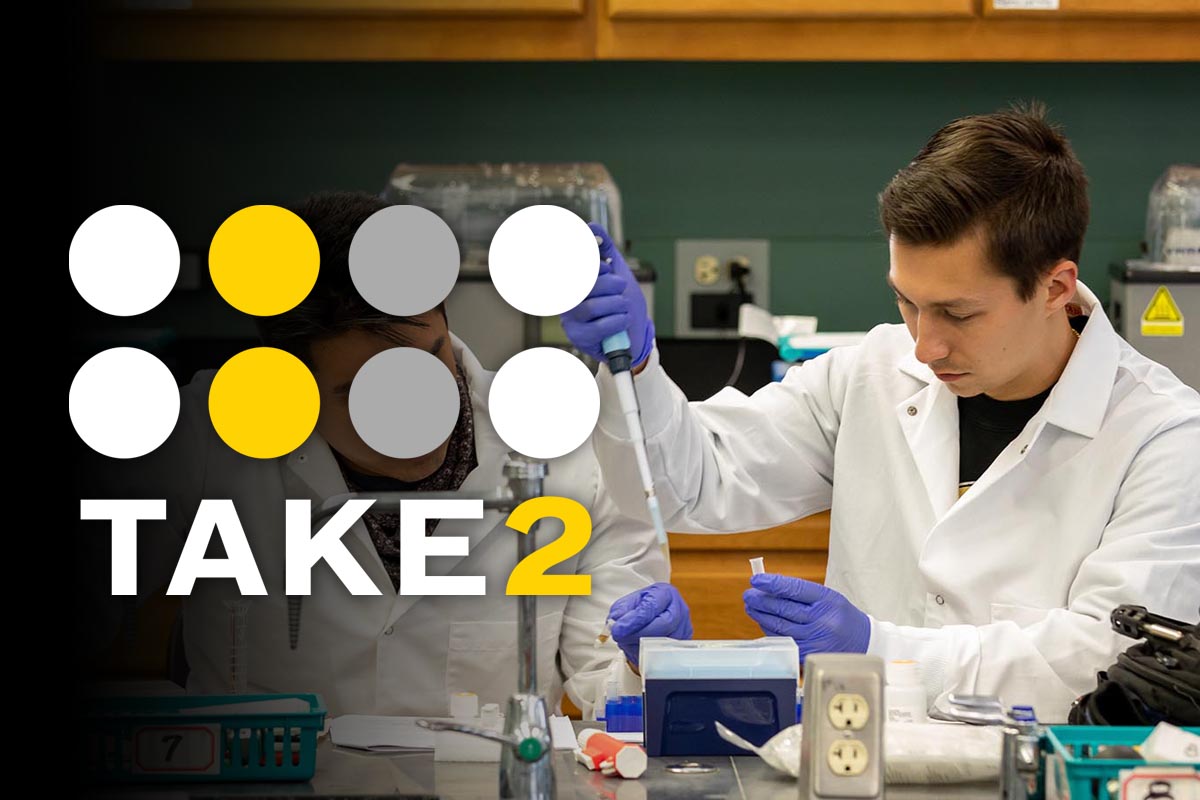Counseling Center Director Jennifer Bondurant helps students adapt to college life in a pandemic

Jennifer Bondurant holds a virtual counseling session with a student.
Jennifer Bondurant knew early on how crucial self-care would be for students during the spring semester.
“More so than any other semester I’ve been at Randolph, it’s so important to take that time for yourself,” said Bondurant, director of the College’s counseling center. “I think for all of us, the days are like Groundhog days. They kind of go into each other because it’s so monotonous.”
At the beginning of the pandemic, Bondurant and her staff of five were quick to launch telehealth counseling services so that student care wouldn’t be interrupted.
“We were so fortunate to have the ability to roll out telehealth as quickly as we did, and I think we’ve all gained new clinical skills,” she said.
“On a college campus, we’re focused on academics and social challenges. We’re really zoned in on what’s happening on campus. Last semester, doing it virtually, we were inside their homes every week. It allowed me to uncover more family dynamics that probably played into some of what I was seeing on campus. I really think it opened my clinical lens.”
It also required her to think outside the box when it came to helping students in other states.
“I’m licensed in Virginia. I can’t just do a virtual counseling session with a student in North Carolina,” she said. “Several states went ahead and made emergency provisions so you could provide services across state lines. But not all states did that.”
In those instances, Bondurant and her staff offered coordination of care appointments, talking to students every two to three weeks to check in and, if necessary, link them with local resources.
The executive orders allowing her to help students in other states are usually extended every 30 to 60 days, so Bondurant checks all of them every month.
“We have to stay on top of it,” she said. “I don’t want students to ever be deterred from seeking services.”
They counseled students through the spring and fall semesters and worked with them as they decided whether or not to return to campus this spring.
“I was really impressed with the decision making of the students I was working with,” Bondurant said. “They truly took the time to weigh the pros and cons of what made sense for them.”
The counseling center opened in mid-January, a couple weeks before students arrived on campus. So far, Bondurant has kept sessions virtual and is periodically reassessing based on the state of the pandemic, hoping to return to limited in-person sessions later in the semester.
The main focus has been to ensure students are adapting to life on campus and all the new protocols that come with it
“For first-years, it’s learning how to navigate life on a college campus in such an unusual environment and coming back mid-year, when they maybe don’t have a social network yet,” she said.
Bondurant and the counseling center staff created a wellness group for students in quarantine and isolation that meets once a week, and several of her staffers have been trained as covid caretakers who check in with students in quarantine or isolation.
“There are so many parts connected to moving a student to quarantine and isolation,” she said. “After a student has been in for a day, the caretakers are calling them, using a check-in form we created. It’s really an assessment to see how they’re doing and if they need to be connected to any resources on campus like tutoring or counseling. It’s also just a friendly voice to say we’re thinking about you, and we’re here for you.”
That’s always Bondurant’s goal—to make sure students know there’s a place they can turn for help, whether they are on campus or not.
“I hope, if anything, they see the value in reaching out for support, even if it’s once or twice,” she said. “Counseling doesn’t have to be a lifelong agreement. It could be a couple meetings just to get things squared away or problem solve something.”
Tags: counseling center, COVID-19, Jennifer Bondurant, Vita No. 10, WildCats Care
